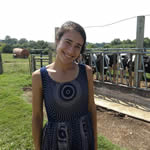EPID 701: R for Epidemiologists
Companion site for EPID 701.
R for Epi Workshop
Welcome! This page gives everything you need for the Institute of Public Health coordinated R for Epidemiology & Public Health Workshop, next offered in Spring 2020 on May 1, 2020. This one-day, intensive workshop is designed for those interested using R for public health and epidemiological analysis of data in their own work settings.
NOTE: This webpage assumes you’ve already registered for the course with the Institute of Public Health (REGISTRATION PAGE WIP).
Description
This course is an introduction to the R language and RStudio environment for statistical computing and graphics, with an emphasis on public health applications. R is a powerful, free, open-source, and community-supported statistical programming language that connects well with growing data science principles. Because it is free and powerful, it is an ideal language for those working with public health data in budget-conscious environments or organizations that would be limited by cost-prohibitive SAS or STATA licenses. R scripts can also supplement or replace repetitive and error-prone workflows in Excel, and because it is open-source and community-supported, experts in the field can release cutting-edge research tools and peer-reviewed functions for your use.
In this full-day, hands-on workshop we first use public health datasets in three interactive, lecture-based modules: (1) learning base R, (2) data manipulation and summary statistics, (3) data visualization. We then close the day with brief demonstrations of advanced R capabilities relevant for public health (e.g. mapping, report building) and leave dedicated time to field questions with participants about their own projects. All code and training materials from the workshop will be shared with participants for future use. Registration fees include workshop lunch, 1-hour of post-workshop support in implementing R projects in participants’ settings, and opportunities for deeper consulting afterwards.
Who is it for?
This workshop is appropriate for local and state public health professionals, healthcare workers (in the public, private, and non-profit sectors), and academic researchers (including current UNC students, faculty and alumni). The recommended prerequisites are a basic working knowledge of:
- computer literacy and tabular data – basic analysis in excel at least, if not data within some database)
- programming concepts – including variables, control structures like if-then statements or loops. Experience in another language (e.g. SAS, Stata, SPSS, or similar statistics programming language) may be useful, but is not required. No experience in R is required.
- statistics – including measures of central tendency (e.g. mean), variance and standard errors, etc.
- public health concepts – including risks, rates, effects, and concepts of variation/disparities by group or spatial area.
Note: Attendance at this workshop requires participants to bring a laptop prepared for R programming for use during the day. This means pre-installing R and R Studio (see Pre-Workshop Preparation, below). There is no time scheduled during the workshop to support registrants who do not have a working R/RStudio, and registrants who do not confirm R/R Studio is installed will have their registration cancelled.
Workshop Agenda
10:00 am - 10:15 am Workshop Welcome and Introductions (All Instructors) 10:15 am - 11:30 am Module 1: Learning Base R (Sara Levintow) (slides) 11:30 am - 11:45 am Morning Break 11:45 am - 1:00 pm Module 2: Data Manipulation and Summary Statistics (Sara Levintow) (slides) 1:00 pm - 1:45 pm Lunch Break 1:45 pm - 3:00 pm Module 3: Data Visualization (Mike Fliss) (slides TBA) 3:00 pm - 3:15 pm Afternoon Break 3:15 pm - 4:30 pm Module 3 continued: (Mike Fliss) (slides TBA) 4:30 pm - 5:00 pm Q&A with Participants
Registration Information and Pre-Workshop Preparation
Registration information is available HERE. You will need to bring a laptop (and likely a power cable) to the workshop. (Lunch is provided in registration costs).
Follow these steps to be ready for the workshop.
- Instructions on installing software
Note that depending on the administrative rights for your machine, you may need your IT department to assist in some of these steps. Since this process can take a while, we recommend coordinating to complete these steps prior to the workshop date. - Pre-workshop survey / install validation
Survey and install validation will be sent out two weeks before workshop. This is required. Failure to complete this survey will result in a cancelled registration. - Workshop Dataset: NC Births
This deidentified dataset on NC births was granted upon request by the NC State Center for Health Statistics.
Instructor Bios




University Operator: (919) 962-2211 | © 2024 The University of North Carolina at Chapel Hill |